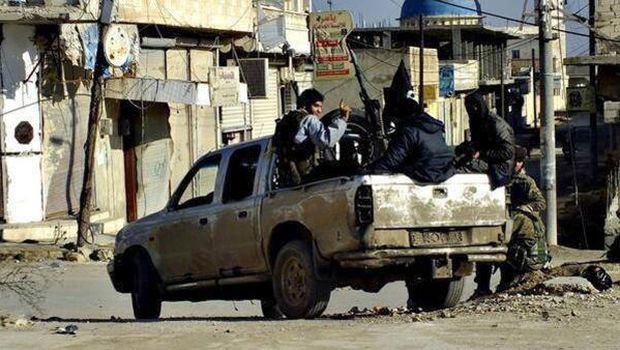The opportunity to build a unified state has not passed, but we cannot make something from nothing. The central questions in this debate are these: has the opportunity passed, have the dreams of the Iraqi people come to an end, and what is there to look forward to? Think of the decades it takes to make real, positive change. The day the army of the United States of America set foot in Baghdad, the dream came one step closer to reality. There was much talk about post-World War II Japan, and specifically the Japanese army, which joined what were dubbed “international coalition forces”—a wholly undeserved name—in Iraq. During the occupation, Japanese troops set up camp in Samawah, in south-central Iraq, restoring what they could, giving rise to the joke that the most beautiful things they left behind were the cheers of “No, no to Japan!” What was reconstructed in Iraq? The Governing Council convened and civilian attorneys were transformed into sectarian representatives.
If we say “yes, we’ve missed our chance”, it means that Iraq’s long history of overcoming hardship will have been for naught. It was not that long ago that we expelled the Ottomans and achieved tremendous progress. So how did we persevere before? The answer is simple: great minds took up the burden and returned Baghdad to her former splendor, as in days when Baghdad was the hub of Iraq, and Iraq was the hub of the world. Remember, many tears were shed over the last Ottoman governor, as if Iraq without the guidance of Istanbul would become a desolate wasteland!
I say the opportunity to rebuild and lay the foundation for democracy has not passed us by. The people of Iraq are not enemies to civilization and freedom. We often hear that Iraqis only respond to the executioner’s noose, that we need to follow the example of Hajjaj Ibn Yusuf Al-Thaqafi, the draconian governor of Iraq until 714 CE. This idea is illusionary; Iraqis, as all other peoples, yearn for freedom and civil rights. But we have suffered the scourge of war, invasion, and internal oppression for long periods of time. This has made us vulnerable to illusions and absurd religious rhetoric, and it is in this context that we practice democracy, with disappointing results. Our social values have been ripped apart.
Iraqis began practicing democracy with no grace period. There has been no time for closure following recent tragedy. The forces of political Islam, once elected, have bet against the past and exploited a social apathy that has gone on for eleven years. Whoever tries to wake up from this political coma is confronted by religious rhetoric soaked in sectarianism.
The opportunity has not passed. If we were to believe it has, we would be throwing Iraq under the bus. This is not a reasonable mindset. We must keep waiting for the chance to begin reconstruction, and to recognize the errors of the past eleven years. Who will seize the opportunity? Surely it will come from outside this rotten leadership, which cannot overcome political partisanship and personal conflicts. When society fails and conditions deteriorate, when fear works in our leaders’ favor, we cannot expect them to work towards reform.
Eleven years is certainly time enough to declare this experience an abject failure, in light of a devastated country, powerful terrorist factions, and the growing presence of corruption. That is not to say that these conditions are intentional, or that the current leaders are being deliberately destructive for their own gain, and that they could be more constructive if only they tried. They behave this way because they have nothing good to offer. These political forces were not more favorable at the time of their opposition to Saddam’s regime. They were just as sectarian, corrupt and fragmented then as they are now. If it had not been for the US army, the forces of political Islam could not have set foot in Iraq. The opportunity presented itself only once the Americans came. It is true that there has been an abundance of crisis and despair, but a solution remains possible, so long as there is willpower and careful management free of narrow agendas and outside ideologies. Yes, this sort of political mindset is almost non-existent, and it will not come to the fore in a democracy trapped in sectarian, religious discourse. However, a change in leadership will be a good start, and once corruption is reined in, and if we remain vigilant, we can stop the establishment of a new dictatorship.
I say Iraq needs an international conference, held by the states that gave the current leadership power, to rectify their mistakes, assume their responsibilities, and to create new political opportunities, given the state of this malformed administration. Right now we have no opportunity to do so. We cannot make something from nothing. Who could object to our plea? Are not the past eleven years proof enough?
The counterpoint to this article can be read here
